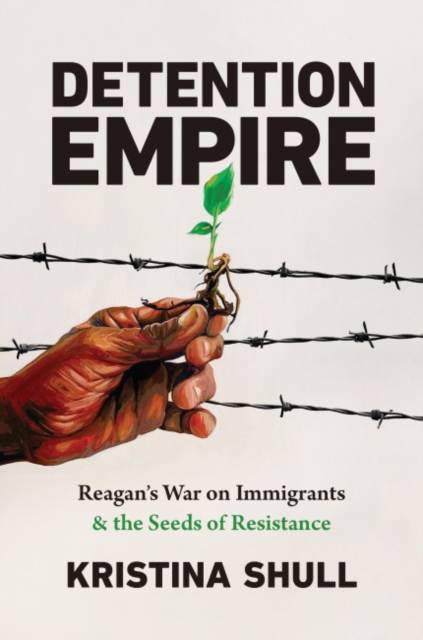
- Afhalen na 1 uur in een winkel met voorraad
- In januari gratis thuislevering in België
- Ruim aanbod met 7 miljoen producten
- Afhalen na 1 uur in een winkel met voorraad
- In januari gratis thuislevering in België
- Ruim aanbod met 7 miljoen producten
Omschrijving
The early 1980s marked a critical turning point for the rise of modern mass incarceration in the United States. The Mariel Cuban migration of 1980, alongside increasing arrivals of Haitian and Central American asylum-seekers, galvanized new modes of covert warfare in the Reagan administration's globalized War on Drugs. Using newly available government documents, Shull demonstrates how migrant detention operates as a form of counterinsurgency at the intersections of US war-making and domestic carceral trends. As the Reagan administration developed retaliatory enforcement measures to target a racialized specter of mass migration, it laid the foundations of new forms of carceral and imperial expansion.
Reagan's war on immigrants also sowed seeds of mass resistance. Drawing on critical refugee studies, community archives, protest artifacts, and oral histories, Detention Empire also shows how migrants resisted state repression at every turn. People in detention and allies on the outside--including legal advocates, Jesse Jackson's Rainbow Coalition, and the Central American peace and Sanctuary movements--organized hunger strikes, caravans, and prison uprisings to counter the silencing effects of incarceration and speak truth to US empire. As the United States remains committed to shoring up its borders in an era of unprecedented migration and climate crisis, reckoning with these histories takes on new urgency.
Specificaties
Betrokkenen
- Auteur(s):
- Uitgeverij:
Inhoud
- Aantal bladzijden:
- 352
- Taal:
- Engels
- Reeks:
Eigenschappen
- Productcode (EAN):
- 9781469669861
- Verschijningsdatum:
- 4/10/2022
- Uitvoering:
- Paperback
- Formaat:
- Trade paperback (VS)
- Afmetingen:
- 154 mm x 232 mm
- Gewicht:
- 476 g

Alleen bij Standaard Boekhandel
Beoordelingen
We publiceren alleen reviews die voldoen aan de voorwaarden voor reviews. Bekijk onze voorwaarden voor reviews.









